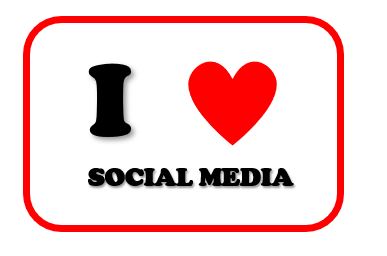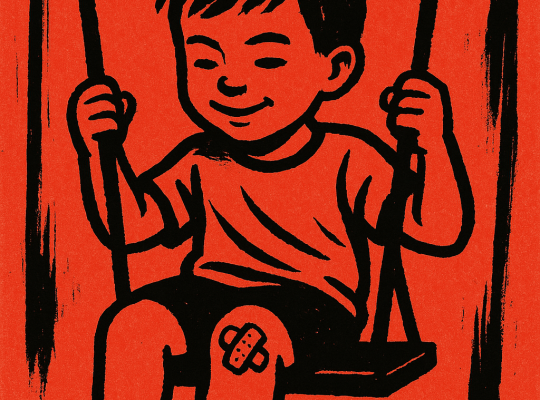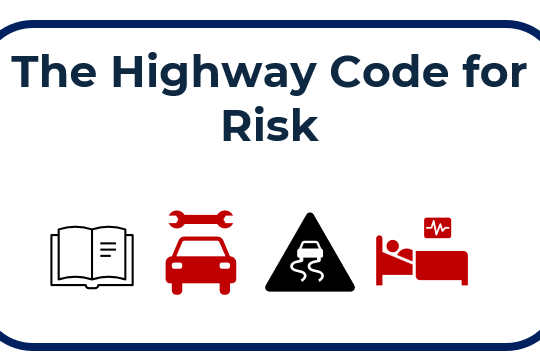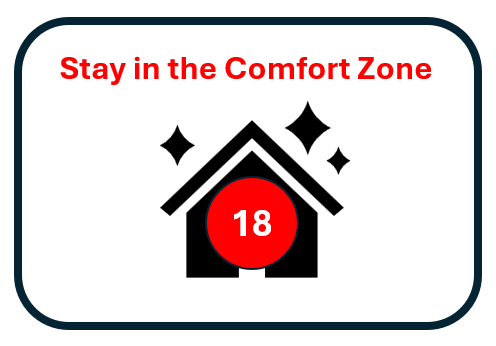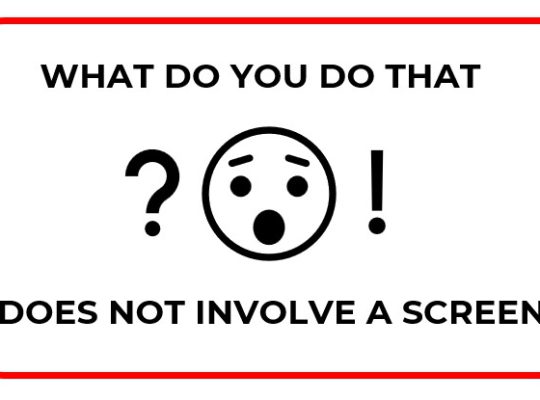My name is Phil and I love social media.
It’s not a guilty pleasure and I am not ashamed to stand up and declare it to the World.
A guilty pleasure is secretly enjoying the Eurovision Song Contest or eating Pot Noodles in your pants – that’s something that you should keep quiet about.
Things that you like to do or have an opinion about is exactly what you should shout about – and that’s what Social Media is for!
But like most things we enjoy in life – it comes with a degree of risk (like eating Pot Noodles in your pants). Hot water and forks.
Social Media started in 2008 for me when I first joined Facebook to start ‘cyber stalking’ people who I vaguely knew and then to share with the World my personal wit and wisdom.
When I realised that the World wasn’t quite ready for my personal wit and/or wisdom – it became a platform to keep an eye on the kids – until they sussed me out and moved to other platforms or got clever with their posts just to keep Dad happy. Facebook is for old people – apparently.
It then became a window for everyone else to enjoy my life – where I was, what I was eating and drinking, where I was working and how I was feeling. Emojis made this easier. Genius inventions. I loved it all.
‘Lockdown 2020’ didn’t start the rise of Social Media but I think that for a lot of people it became more of an essential conduit for communication, comment, information, a lifeline for sanity and also dare I say it, simply having fun. There is nothing wrong with that in any way, shape or form.
But of course – increase the activity – you increase the risk.
Social Media platforms have long been a source of having fun, showing off, checking in on what old flames/school mates/colleagues are getting up to, if you are now fatter than them and posting a picture of you having a beer and pizza for breakfast in Magaluf (and wondering why you are fatter than all your friends).
That’s why God created social media – to have fun and share stuff. (I am not suggesting that the likes of Zuckerberg, Dorsey, Hoffman or Systrom are Gods – but someone granted them the vision and creativity in the first place).
So if you are not clever enough, brave enough or motivated enough to build your own social media site – why not use someone else’s invention?
Anybody drive a car they invented themselves or use any form of self-built technology around the home? Very few – I expect (unless you are called Dyson or Branson!)
My point is – there is no reason to hate the creators. They probably didn’t know what a rich vein they had hit when their ‘chat applications’ first hit the cyber streets. As the technology grew, the popularity grew and potential to make more money grew.
They have a business to run and the way that they make their money is by attracting us to their applications and sites in order to sell our contact to third party suppliers of stuff that they think we need. The thing that they use and sell – is our hidden ‘DNA of personal data’.
Have you noticed that your Tesco Clubcard will send you vouchers and offers based on your previous purchase history – or tempt you to try something new along the lines of things that it reckons you already like? Isn’t that magic? Well not really – we all understand that Tesco and the others can track our spending habits so why shouldn’t they try to push a new product our way as long as it fits our needs?
I get a lot of vouchers for the latest flavours of Pot Noodles for some strange reason.
Watch any crime show (fictional or factional) and you will know that whatever you do, wherever you go – you will leave a trace. It might be a small one but it can track back to you and be used to either find you or identify you. Could be a fingerprint or DNA Sample, which will need some form of special technology to collect and analyse it. This type of ‘metadata’ can show all kinds of neat things like dates, times and location.
In the world of Cyber – Its lovingly called your ‘Digital Footprint’.
Away from the easy data – like a picture of you or a check-in at a location. It might be something that you do which can be interpreted and analysed, it could be something you say – which can identify your mood, political/religious slants, educational background, social status or that you simply spout shite.
The more you do and the louder you shout the more you will be recognised and known.
Some people (like me) love to share their creativity, chat about the weather, give their opinions or simply agree with somebody else by using a smiley face and thumbs up (genius).
But put it all together and especially over a period of time – you start to build up a profile or a picture of just who this person is and what they like and don’t like.
Data collected quickly becomes Personal Identifiable Information.
- Who are you?
- Where do you live?
- What do you look like?
- How old are you?
- Where do you work?
- What do you do a lot of?
- What hobbies and Interests do you have?
- What are your political views?
- What did you have for breakfast?
- Who are your friends?
- What are your strengths/weaknesses?
The list is endless and very personal.
Have a go yourself. Either use your own profile or pick a friend on Facebook and search back through the past couple of years to see what you can piece together about them. See if you can spot a trend or a specific area that they are passionate about.
We have all put a couple of ticks in some boxes that tells the application ‘not to share our data with anybody who isn’t our friend’ and ‘don’t use my data for anything that isn’t in the site agreement’.
‘The site agreement is 5 pages long and to be honest – I am only posting my breakfast pictures or checking into A & E with fork related injuries, so I can’t be arsed to read all that’. But do we realise that the good people at Facebook etc become a ‘friend’ of ours when we agree to sign up to use their application?
If you have a moment – take a look at the Facebook Privacy site
https://www.facebook.com/about/privacy
They are not hiding anything from us – it’s clear, well written, colour coded and in full sight – the terms in which our data is collected, used and shared. You can tick as many boxes to block your ex-friends but none of this changes in the background.
I like Facebook and I use it in line with the terms they set out.
When we post a message to the World on Social Media. Understand that we are posting a message to The World. The good, the bad and the ugly. (And here I am not referring to my Friends List!)
Knowing this – is the key to happiness on Social Media. And social media is all about spreading happiness.
Those of you that think about using it to spout shite about other people – stop doing it now. Those of you who do it to be spiteful – pack it in. Those of you who do it to bully others – prison awaits you.
Those of us that post to show how lucky we are, how unlucky we are, how life can be great, how life can be shite and feel that it is something that we need to share because it helps – carry on.
Those of us that post to spread our version of wit and wisdom – crack on. That’s what being social is all about.
But post with care and play nicely.
The magic of the Internet doesn’t make those adverts pop up in your personal threads by accident – it’s technical collection and analysis of data that does this. Artificial Intelligence and Machine Learning means that it is an automated process that is not necessarily accurate or thoughtful but this is the technology that rules in the background.
Having 1000’s of virtual friends – isn’t a sign of status or popularity. It just increases your footprint to a robot that is going to send you shite. So have a cull every now and then.
Only connect and respond to people that you know and/or trust. Don’t think that professional sites such as LinkedIn are any different (and in some cases they are worse). LinkedIn is full of lunatics and self appointed egomaniacs that feed off your connection – so avoid them like the plague. It won’t help you get a job – but it will fill up your inbox with crap.
When you post something – regardless of what it is – post it in the knowledge that although only your first line friends will be able to comment directly and share an emoji with you – it is now for the World to see (the good, the bad and the ugly). The good and the ugly, may not be the issue – but the bad is what we need to defend against!
Some Tips
Don’t post your routines (always going on holiday at certain times or being in certain places at certain times).
Be careful not to inadvertently advertise that your home or business is not occupied
Be careful with photographs (don’t have your credit card in the shot next to your beer and pizza breakfast)
Avoid being overly political or religious (extreme)
Make sure that everyone is happy for their picture to be posted if you are in a group
Avoid compromising pictures or comments which you may remove with regret but the Internet has a history and people have memories!
Look after your kids on these sites – young/teenage children are targets. Educate but don’t scare them. There are some great sites that can help such as: NSPCC Learning.
https://learning.nspcc.org.uk/safeguarding-child-protection/social-media-and-online-safety
Look after ALL your family members. If this is the first time that Granny has been on the Internet in order to keep in touch – make her aware of the risks. We all have vulnerabilities (regardless of age and wisdom) and can easily become targets to the ‘Bad’ on the Internet. And Social Media is a target rich environment. It’s better to use a Zero Trust mentality in the world of Cyber.
Be careful with built in apps – and if you no longer use/need them – remove them from your devices. Those you need – keep them updated with the latest fixes.
Use very strong passwords for the sites and routinely change them and use a different password for each site. A Password Manager can help with this.
Don’t reply to unusual friend requests or comments from people you don’t know.
There are some great sites that can give you lots of tips and advice. We are all only a quick internet search away from your local Cyber Protect Unit and the National Cyber Security Centre (UK) is the font of all knowledge:
https://www.ncsc.gov.uk/guidance/social-media-how-to-use-it-safely
When it comes to managing risk – you can break it down into 4 primary functions:
Reduce – get rid of applications you no longer use or need. Keep your friends to a minimum. Don’t allow tracking on apps unless they are specifically required and think about what you are posting.
Retain – know the residual risk and accept it.
Avoid – if you are not happy to accept the risk don’t use the application.
Transfer – doesn’t really apply in this situation but things like insurance and Service Level Agreements come into play. Read the terms and conditions and know what the agreement is. Understand what your data is being used for.
At the end of the day – it’s all about applying some common sense. You cannot completely remove the risk in anything you do but you can mitigate the negative impacts and most importantly – still have fun and enjoy the application in the process.
But have fun always and enjoy sharing your breakfast pictures with the World!
Everybody wants to see it and never let anybody tell you differently!
Stay safe!

